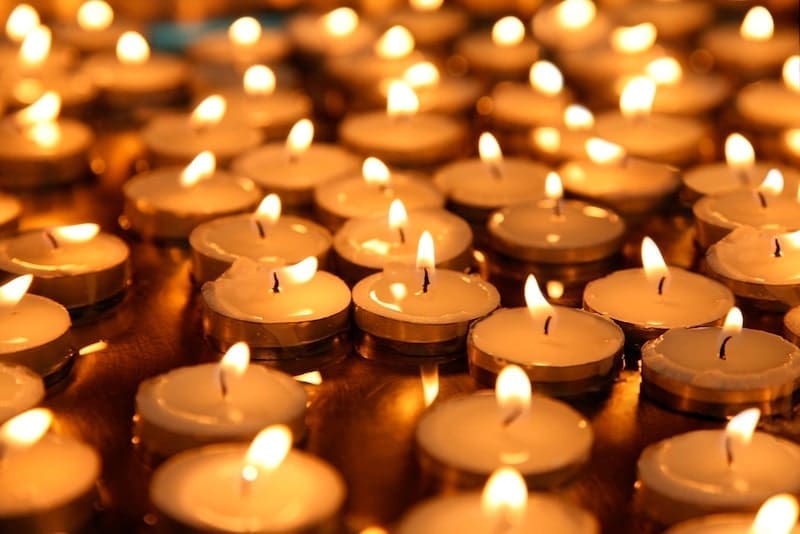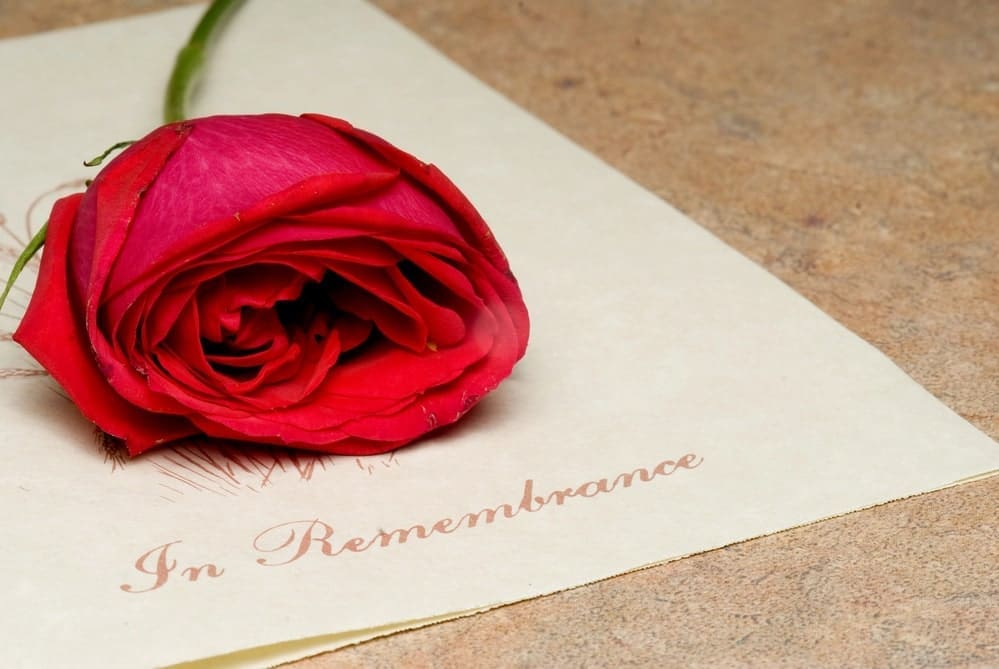The task of pre-planning your parents’ final services is undoubtedly an emotionally challenging responsibility to undertake. Imagine sitting across from them and discussing their wishes for this inevitable moment. It can’t be easy, can it?
While nothing can prepare us to walk down this path, it’s ultimately going to be easier for us in the long run. Wondering how? Well, this might help:
Linda Charlton – an only child – had to go through the loss of her parents by making all their end-of-life decisions for them. Charlton had never had a chance to ask her aging parents about their final wishes and regretted it deeply after they were deceased.
Charlton, 60, now understands that no one should leave their loved ones behind “second guessing” what type of funeral to organize, and we agree.
In this article, we will break down the talk for you, doing our best to make this emotionally overwhelming conversation simpler for you.
What’s The Right Time to Talk to Your Parents About It?
Let’s put it out there, to begin with – there’s no easy way to bring up the subject of your parents’ death, especially to them. However, the truth is, they might never approach this subject on their own if you don’t. After all, they’ve been your caregivers for most of their lives; you need to take charge now.
Cameron Huddleston, a financial journalist, found out about her mother’s Alzheimer’s disease a little later than she should have. As her mother started showing signs of memory loss, it became a challenge to ask her about end-of-life plans.
That’s why Huddleston suggests others talk to their parents about this subject early. They should do it soon so that they’re physically and mentally sound enough to weigh in on the decisions and convey their wishes. It’s a chance to weave their stories into the fabric of their farewell, celebrating the values that define them.
This isn’t merely a checklist of logistics; it’s a heartfelt exploration of what truly matters to them. The melodies of their favorite songs, the rituals that define their spirituality, and the anecdotes that spark laughter amidst tears – they’re all priceless legacies. Legacies that you’d want to cherish even beyond their lifespan, wouldn’t you?
Start by Preparing Yourself For The Talk
Initiating a conversation about pre-planning your parents’ final services is not just challenging for them—it’s going to be hard on you as well. Legacy Headstones notes that death is not something we like to think about, but it is still an inevitable fact of life.
As you prepare to broach this sensitive topic with your parents, take a moment to reflect on your own emotions and expectations. Consider what you hope to learn and how you envision supporting your parents through this process.
Anticipate a range of emotions—from nostalgia to apprehension—as you embark on this journey. It’s natural to feel a mix of sadness and relief, knowing that discussing their final wishes honors their life and prepares you for the future.
Marine Cogan, a senior correspondent at Vox, opens up about her own experience with it in hopes of helping other children. Cogan points out that while most online checklists suggest starting by talking about their wills and assets, it might not be the right way.
In your first conversation – and keep in mind that there will be other ones – you should stick to the basics. Ask them if they’ve spared any thoughts about what they want from the end of their lives. If they have, inquire about what kind of plans they have and the way you can support them in those.
It’s also equally important not to get too attached to anything that might conclude these discussions. Remember that it might be the first time they’re pondering these questions. So, it’s best not to get too attached to what they say. It allows them room to make changes in their end-of-life plans if they need to.
Deciding on Burial or Cremation
Once you’ve had a foundational conversation, you can build on it over time, asking more concrete questions and understanding their perspective on them. One such question is whether they’d prefer a burial or a cremation.
It’s a deeply personal decision that reflects individual beliefs, cultural practices, and practical considerations. In addition to shaping the final farewell, it also influences how loved ones remember and commemorate a life well-lived.
When contemplating burial, consider the significance of a final resting place—a serene sanctuary where the family can visit and find solace. It often aligns with religious traditions and offers a tangible connection to heritage and history.
A cemetery burial also opens up discussions of what they want their headstones to say. Traditionally, most headstones mention only the lifespan of the deceased. However, more and more people nowadays look for ideas in interesting articles on headstones – often to reflect their beliefs or principles.
Conversely, cremation offers versatility and personalization. It provides the flexibility to scatter ashes in cherished locations, incorporate them into keepsakes, or preserve them in an urn at home. This option appeals to those prioritizing environmental concerns or seeking a less traditional approach to memorialization.
Planning the Memorial Ceremony
Next comes the planning of their memorial service. These services, in essence, are an intimate and meaningful gathering of your loved ones to remember your parents and find comfort in shared memories.
You can start pre-planning the service by asking your parents what kind of memorial they want – a casual celebration or a traditional service. What do they want others to remember them by once they depart?
Over time, you can get into the specifics, by asking for their preferences of select readings, poetry, or religious verses they want to read at the services. Who do they want to deliver their eulogy? In case they’re choosing each other, it makes sense to jot down some backups as well.
While we’re talking of memorials, here’s another potentially painful realization you should prepare yourself for: your parents might not want one at all. It’s a real possibility, as seen in the case of Kelly Erb, a Pennsylvania-based lawyer.
Erb grew up around lots of funerals, which left a strong impression on her mind, leading her to decide not to have one altogether.
It might not sit well with you at first. After all, these services help the surviving members of the family grieve for their loss. But you have to keep in mind that honoring your parents’ wishes is more important.
Legal and Financial Considerations
When you’ve gotten over all of it with your parents, the subject of death might not be as awkward anymore, is it? Now is the time to bring up the legal and financial considerations of your parents’ deaths.
Talk to them about their end-of-life documentation and what they’ve planned for those. These include their will, power of attorney, and a living trust. If they have properties, estates, or any other commercial asset, planning for how those will be managed following their death is also important.
If your parents have already thought about it all, that’s one less thing for you to worry about. If not, you can get them in touch with a lawyer or financial advisor to sort it all out.
Sit with them in those meetings if you think it’ll provide them with a sense of support. Remember, while you can’t make any decisions for your parents, your support might mean more to them than you think.
Frequently Asked Questions (FAQs)
Can I plan my funeral services before my death?
Yes, you can plan your funeral services before your death. This process, known as pre-planning or pre-arrangement, allows you to choose your final services in advance, ensuring your wishes are honored. It can ease the emotional and financial burden on your loved ones and provide peace of mind.
How much does organizing a funeral typically cost in the US?
Organizing a funeral typically costs anywhere between $7,000 to $10,000 in the US. The rising funeral prices in the last few years have put undue strain on families of the deceased. Life insurance can also take care of the funeral charges of the insurer once they pass away.
Are more people choosing cremation over burial nowadays?
Yes. According to Forbes Advisor, the cremation rate in the US has doubled to 57%. As most Americans are living paycheck to paycheck, affordability becomes the biggest factor behind the choice of cremation. Cremation is also more environment-friendly, with a smaller carbon footprint and fewer overall resources.

To summarize it all, the departure of a loved one can never be easy. But it gets increasingly challenging when those who part are our parents.
While no child wants to think about their parents’ deaths, the conversation about their final services isn’t one you should avoid for long. Otherwise, it will only cause you more pain not knowing what they’d have wanted after they passed away.


